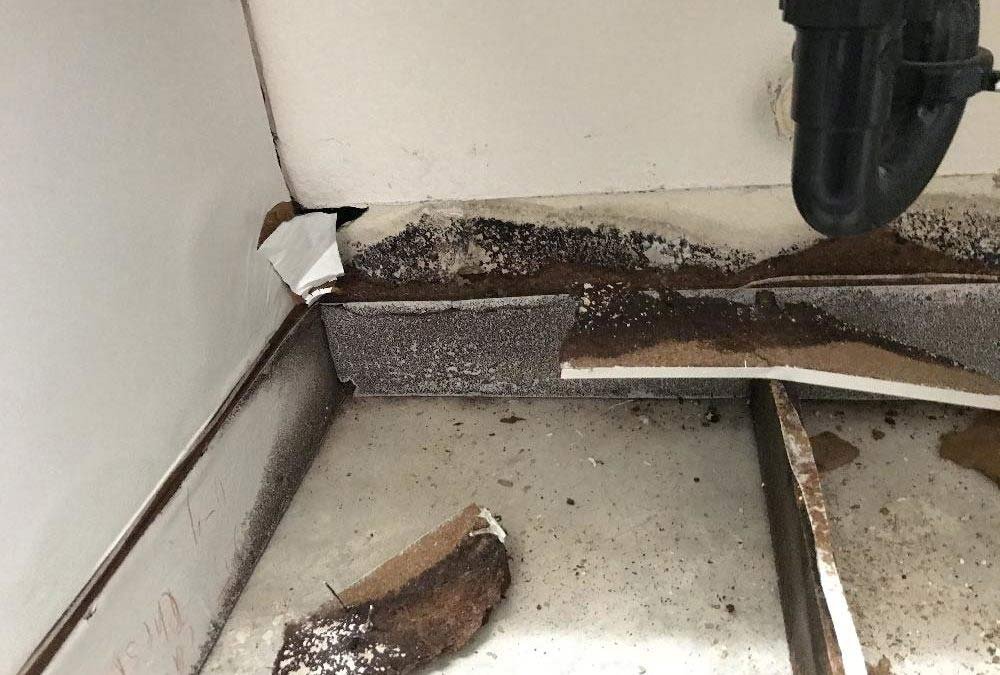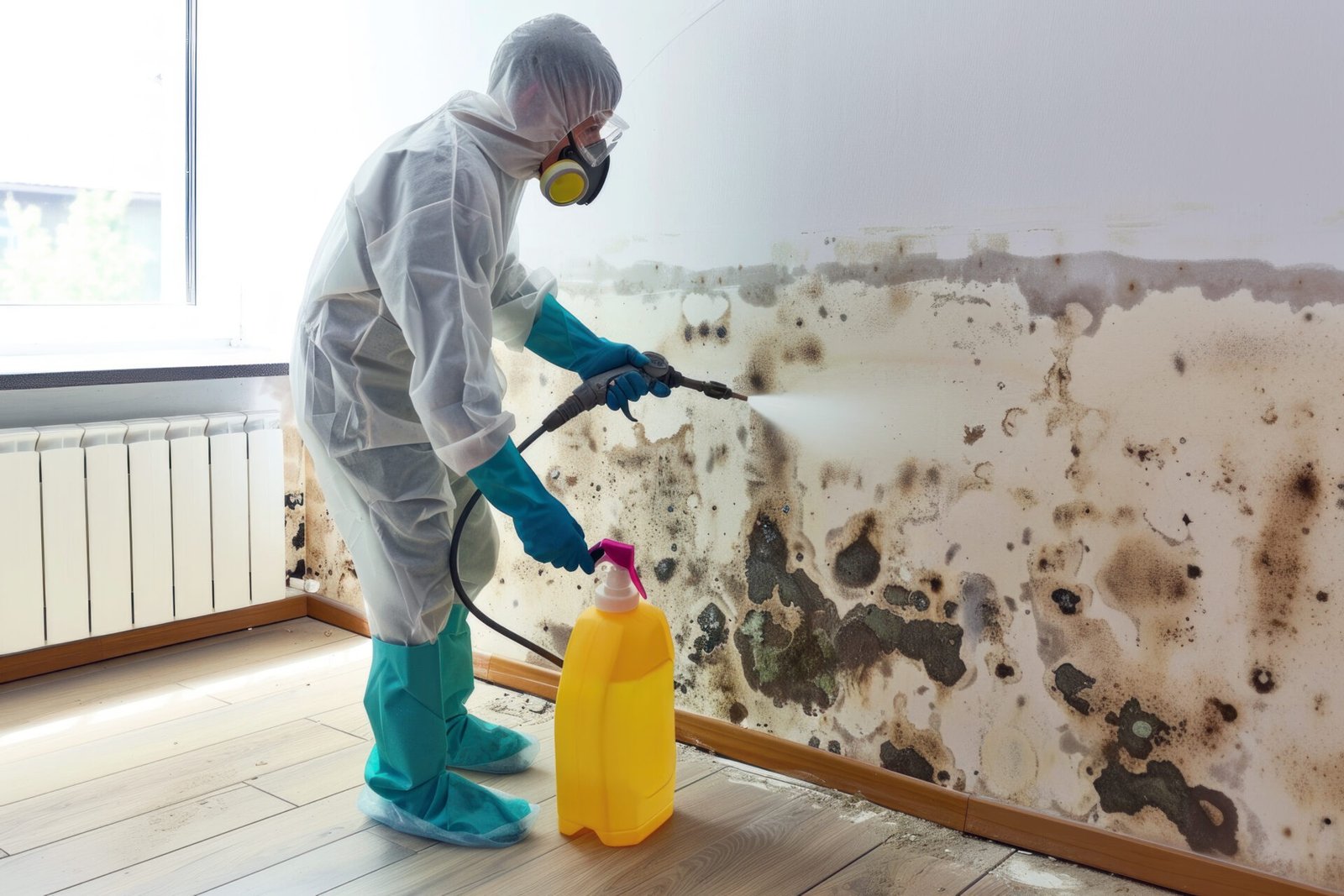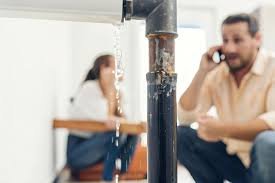Introduction
Florida’s tropical climate is one of its biggest draws, offering warm weather, ocean breezes, and vibrant living in places like West Palm Beach. However, the state’s high humidity—often exceeding 60%—creates a perfect storm for mold growth, especially in homes with poor ventilation or a history of water damage. Mold isn’t just an aesthetic issue; it can damage your property, reduce its value, and pose serious health risks. Understanding how Florida humidity contributes to mold and knowing how to prevent it are critical for homeowners and property managers alike.

At Edwards Property Remediation, we’ve helped countless West Palm Beach residents tackle mold caused by humidity and water damage. This comprehensive guide explains how humidity fuels mold growth, identifies common trouble spots in homes, highlights warning signs, and provides actionable steps to keep your property mold-free. If you suspect mold or want to stay ahead of the problem, call us at (754) 221-6945 for a free mold evaluation.
How Florida’s Humidity Leads to Mold Growth
Mold is a type of fungus that thrives in environments with three key ingredients: moisture, warmth, and organic material. Florida’s climate provides all three in abundance:
- 🌡️ High Temperatures: Year-round temperatures between 75°F and 85°F create an ideal environment for mold to flourish.
- 💧 Constant Humidity: Relative humidity in West Palm Beach often ranges from 60% to 80%, especially during the rainy season (June–November). Levels above 60% allow mold spores to germinate and grow.
- 🪵 Organic Materials: Common household materials like drywall, insulation, carpets, wood, and even dust provide a food source for mold.
When humidity levels inside your home exceed 60%, mold spores—naturally present in the air—can settle on surfaces and begin to grow. This process can start within 24–48 hours of moisture exposure, particularly after water damage from leaks, floods, or poor ventilation. In Florida, where humidity is a constant, even minor moisture issues can quickly escalate into significant mold problems if not addressed promptly.
The Science of Mold Growth
Mold reproduces by releasing microscopic spores that float through the air. These spores are harmless in small quantities but become problematic when they land on damp surfaces. Florida’s humidity keeps surfaces like walls, ceilings, and furniture moist, especially in homes with inadequate airflow or unresolved leaks. Once spores take hold, they form colonies that spread rapidly, penetrating porous materials like drywall or wood. This can lead to hidden mold growth behind walls or under floors, making it difficult to detect without professional tools.
Common Places Mold Grows in Humid Florida Homes
Florida’s humid climate allows mold to thrive in both obvious and hidden areas of your home. Here are the most common trouble spots in West Palm Beach properties:
- Bathrooms Without Proper Ventilation: Showers, bathtubs, and sinks create moisture that lingers without exhaust fans or open windows, fostering mold on tiles, grout, or behind walls.
- Behind Walls with Hidden Pipe Leaks: Slow leaks from aging plumbing or poor fittings can soak drywall and insulation, creating hidden mold colonies.
- Around Windows and Sliding Doors: Condensation from humidity or poor sealing allows water to seep into frames or sills, promoting mold growth.
- Inside Air Ducts and HVAC Systems: Clogged condensate lines or damp ducts can harbor mold, spreading spores throughout the home via airflow.
- Under Kitchen or Bathroom Sinks: Leaky pipes or spills in cabinets create damp, enclosed spaces ideal for mold.
- In Closets, Basements, or Garages: Poorly ventilated areas trap humidity, especially if storing organic materials like cardboard or clothing.
- Attics with Poor Insulation: Roof leaks or inadequate ventilation allow moisture to accumulate, fostering mold on beams or insulation.
Older homes, common in Palm Beach County, are particularly vulnerable due to outdated plumbing, roofing, or ventilation systems that exacerbate humidity issues.
Warning Signs of Humidity-Related Mold
Detecting mold early can prevent costly damage and health risks. Look for these signs of humidity-related mold in your West Palm Beach home:
- Musty, Damp Odor Indoors: A persistent “earthy” smell, especially in enclosed spaces like bathrooms, closets, or basements, indicates mold or mildew growth.
- Black or Green Patches on Walls or Ceilings: Visible mold, often appearing as dark spots or fuzzy growth, signals active moisture issues.
- Peeling Paint or Bubbling Wallpaper: Moisture behind walls causes paint to crack or wallpaper to bubble, often hiding mold underneath.
- Allergy-Like Symptoms: Sneezing, coughing, itchy eyes, or respiratory issues, particularly when indoors, may indicate mold exposure, especially for sensitive individuals.
- Condensation on Windows or AC Vents: Persistent water droplets or fogging suggest high indoor humidity, creating conditions for mold.
- Warped or Soft Flooring: Wood or laminate floors may buckle or feel spongy due to moisture trapped underneath.
If you notice any of these signs, act quickly to prevent mold from spreading. Mold can compromise indoor air quality and cause structural damage, especially in Florida’s humid environment.
Health and Property Risks of Mold
Mold isn’t just unsightly—it poses serious risks:
- Health Impacts: Mold exposure can cause allergies (sneezing, rashes, itchy eyes), asthma exacerbation, respiratory issues, or, in rare cases, infections from toxic molds like Stachybotrys (black mold). Vulnerable groups include children, the elderly, and immunocompromised individuals.
- Structural Damage: Mold degrades organic materials like drywall, wood, and insulation, weakening structures and requiring costly repairs.
- Reduced Property Value: Visible or hidden mold can deter buyers and lower your home’s marketability.
- Insurance Complications: Many policies exclude mold damage from gradual leaks or humidity unless addressed promptly with professional remediation.
In West Palm Beach, where humidity is a year-round issue, proactive measures are essential to protect your home and health.
How to Control Indoor Humidity in Florida Homes
Preventing mold starts with controlling indoor humidity and addressing moisture sources. Here are practical steps to keep your West Palm Beach home mold-free:
- Use a Dehumidifier:
- Invest in a high-capacity dehumidifier, especially during the rainy season or in enclosed spaces like basements or closets. Aim to keep indoor humidity below 50%.
- Empty and clean the dehumidifier regularly to prevent mold growth inside the unit.
- Ventilate Bathrooms and Kitchens:
- Run exhaust fans during and after showers, cooking, or dishwashing to reduce moisture buildup.
- Open windows when weather permits to improve airflow.
- Consider installing stronger exhaust fans in high-moisture areas.
- Maintain Your AC System:
- Schedule annual HVAC maintenance to ensure proper function and clean condensate lines to prevent clogs.
- Replace air filters regularly to maintain airflow and reduce humidity.
- Use a float switch to shut off the AC if the drain line clogs, preventing overflows.
- Fix Leaks Immediately:
- Address even minor leaks in pipes, roofs, or windows promptly. A small drip can fuel mold growth in Florida’s humidity within days.
- Use a plumber or contractor to repair leaks, and call Edwards Property Remediation to dry affected areas.
- Schedule Regular Mold Inspections:
- If your home has a history of water damage or high humidity, annual inspections can catch mold early.
- Edwards Property Remediation offers free mold evaluations using advanced tools to detect hidden issues.
- Improve Home Ventilation:
- Use ceiling or portable fans to circulate air in stagnant areas.
- Ensure attics and crawlspaces have proper ventilation to prevent moisture buildup.
- Seal Windows and Doors:
- Check for gaps or worn seals around windows and sliding doors, as these allow humid air to enter.
- Use weatherstripping or caulk to improve sealing.
✅ Tip: Monitor indoor humidity with a hygrometer, available at hardware stores, to ensure levels stay below 50%.
Professional Mold Remediation in West Palm Beach
If you suspect mold or notice signs of humidity-related damage, professional intervention is critical. At Edwards Property Remediation, we offer a comprehensive mold remediation process tailored to Florida’s climate:
- Thorough Mold Inspections: We use moisture meters, infrared cameras, and air quality testing to identify mold and its sources.
- Containment and Air Filtration: We isolate affected areas and use HEPA air scrubbers to remove airborne spores.
- Safe Mold Removal: Our IICRC-certified technicians safely remove contaminated materials like drywall or insulation.
- Moisture Control: We address leaks, poor ventilation, or high humidity to prevent recurrence.
- Restoration: We rebuild affected areas, restoring your home to its pre-mold condition.
- Insurance Support: We provide Xactimate estimates, photos, and progress logs to streamline claims.
Our team is fully licensed, insured, and trusted by Palm Beach County homeowners and insurance carriers. Check our Facebook page for 5-star reviews.
Case Study: Mold Remediation in a West Palm Beach Home
A West Palm Beach homeowner noticed a musty odor and peeling paint in their bathroom. Our inspection revealed hidden mold behind the walls due to a slow leak and high humidity. Our process:
- Assessment: Infrared cameras detected moisture from a leaky shower valve.
- Containment: Set up barriers to prevent spore spread.
- Removal: Safely removed moldy drywall and applied antimicrobial treatments.
- Moisture Fix: Repaired the leak and installed a stronger exhaust fan.
- Restoration: Replaced drywall, repainted, and verified mold-free air quality.
- Outcome: The home was mold-free in five days, with full insurance coverage.
This case shows how addressing humidity and mold together prevents recurrence.
Additional Tips for Florida Homeowners
- Check for Leaks Regularly: Inspect under sinks, around appliances, and in attics for signs of water.
- Use Mold-Resistant Materials: Consider mold-resistant drywall or paint in high-moisture areas.
- Monitor AC Vents: Condensation or moldy smells near vents may indicate HVAC issues.
- Act After Water Damage: Call professionals within 24 hours of a leak or flood to prevent mold.
- Document for Insurance: Take photos of mold or water damage to support claims.
Health Risks of Mold in Humid Homes
Mold exposure can cause:
- Allergies (sneezing, itchy eyes, rashes).
- Respiratory issues (coughing, asthma exacerbation).
- Infections or toxicity in severe cases (e.g., black mold).
Prompt remediation protects your household, especially vulnerable groups.
Navigating Insurance for Mold Issues
Many policies cover mold remediation if caused by a covered event like a burst pipe. Edwards Property Remediation provides detailed documentation to ensure coverage.
Conclusion
Florida’s humidity is a constant challenge for West Palm Beach homeowners, creating ideal conditions for mold growth. By recognizing warning signs like musty odors or peeling paint and controlling indoor humidity, you can prevent mold from taking hold. If mold is already present, trust Edwards Property Remediation for expert inspections, remediation, and prevention. Our IICRC-certified team is ready to protect your home year-round with fast, reliable service.
📞 Call Edwards Property Remediation at (754) 221-6945 for a Free Mold Evaluation 📧 Email info@eprllc.net 🌐 Visit www.eprllc.net/property-managers 👉 Follow us on Facebook for tips and updates




